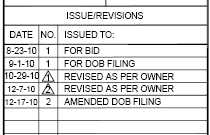You may have wondered who are all the engineers and consultants working on a project, and why are they needed.
Construction design teams are groups of professionals who work together to plan, design and construct buildings and other structures. The design team is typically composed of architects, engineers, contractors, and consultants. Architects and engineers play critical roles in design and construction and are essential to the success of a project and work together to bring ideas to life.
Architects are responsible for the overall design of a building. They consider the intended use of the building or floor, as well as factors such as light, space, and accessibility. They also consider the budget and schedule and must make decisions that balance aesthetics, functionality, and cost. Architects use their creativity and problem-solving skills to develop plans and specifications for a building and often work closely with clients to understand their needs and goals.
An MEP (Mechanical, Electrical, and Plumbing) engineer specializes in the design and implementation of building systems such as heating, ventilation, air conditioning (HVAC), electrical, and plumbing. MEP engineers are responsible for ensuring that these systems are safe, efficient, and meet the needs of the building’s occupants.
- Mechanical engineers focus on the design and implementation of heating, ventilation, and air conditioning systems. They ensure that these systems provide a comfortable indoor environment and maintain good air quality and that they are energy efficient and cost-effective. Mechanical engineers also consider sustainability and environmental impact in their designs and may incorporate renewable energy sources such as solar panels or geothermal systems.
- Electrical engineers focus on the design and implementation of electrical systems, including lighting, power, and communications. They ensure that these systems are safe and efficient and that they meet the needs of the building’s occupants. Electrical engineers may incorporate renewable energy sources such as photovoltaic panels and are responsible for all indoor and outdoor lighting.
- Plumbing engineers focus on the design and implementation of plumbing systems, including water supply, waste management, and fire protection. Plumbing engineers also consider sustainability and environmental impact in their designs and may incorporate systems such as greywater recycling or rainwater harvesting.
MEP engineers play a critical role in the design and implementation of systems. By combining technical expertise and a commitment to safety and sustainability, MEP engineers ensure that buildings are comfortable, efficient, and meet the needs of their occupants.
Site engineers are responsible for overseeing the preparation of the building site, including excavation, grading, and drainage. They ensure that the site is level and stable and that all necessary infrastructure, such as utilities and road access, is in place.
Civil engineers, on the other hand, focus on the design and construction of infrastructure such as roads, bridges, and water and waste management systems. They use their knowledge of engineering principles and materials science to design and analyze structures and to develop construction details and specifications. Civil engineers also consider environmental and sustainability factors, such as the impact of their designs on local ecosystems and the use of renewable energy sources.
Other consultants play an important role in the construction design team by providing specialized expertise and knowledge. They may include Surveyors, who survey the land and determine the building’s boundaries, and Geotechnical engineers, who assess the soil and foundation conditions. Environmental consultants ensure that the building meets environmental regulations and standards, and Cost consultants help to manage the project budget and ensure that costs are controlled. Structural engineers analyze structures, considering factors such as seismic loads, as well as the weight of the structure itself and any equipment or occupants that will be using it.
Other project consultants can include Technology consultants who design the technical infrastructure including audio/visual, and IT. Landscape architects may incorporate features such as green roofs, rain gardens, and other sustainable design elements into their projects and maintain the quality of outdoor spaces. Acoustical engineers implement solutions that control and improve the sound quality in different spaces and are responsible for creating spaces that are acoustically optimized for their intended use, providing high-quality audio experiences and minimizing unwanted noise.
Each member of the construction design team plays a crucial role in the success of a construction project. Architects, engineers, contractors, and consultants work together to ensure that the building is designed, built, and operates safely, efficiently, and within budget and timeline. Effective communication and collaboration among the members of the design team are key to the success of the project.
Discover more from Helping NYC & Long Island Commercial Tenants, Owners, and Developers
Subscribe to get the latest posts sent to your email.





